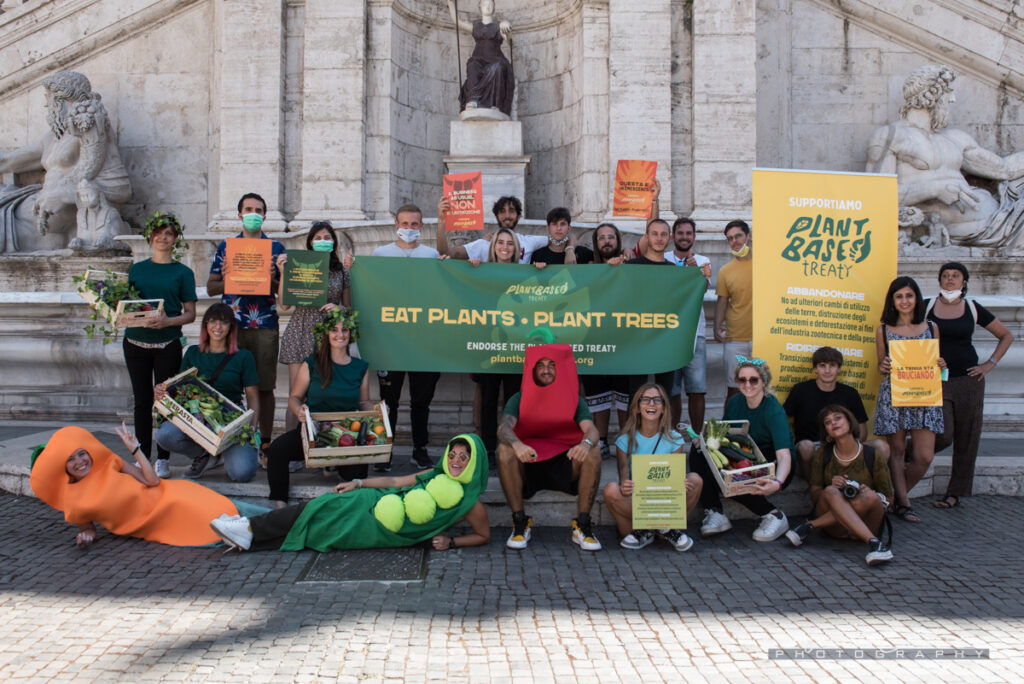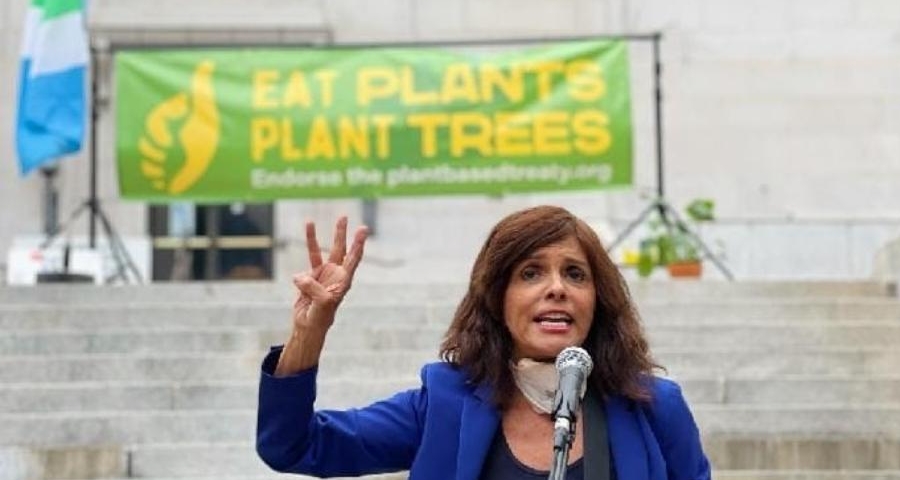After the much-awaited IPCC report announced a “code red for humanity”, a new grassroots campaign seeks to draw the attention of global leaders to a pertinent issue. The largest driver of the climate crisis is believed to be our food system. Hence, the Plant-Based Treaty demands that governments of every country around the globe reach a consensus to encourage a drastic change and cease animal agriculture to cut down on emissions.
THE NEED FOR FIXING THE GLOBAL BROKEN FOOD SYSTEM
Experts believe the broken food systems around the globe are quickening the pace of the climate-crisis. They suggest that eliminating fossil fuels and gravitating toward renewables is a must. However, by itself, it shall not suffice to curb the terrifying results of climate change. Animal-based foods are incredibly carbon-intensive in addition to being resource-hefty products. Therefore, they are responsible for driving a large part of the food system’s emissions, mainly because of the methane. Did you know that livestock farming comprises almost 1/5th of the world’s GHG emissions as well as 70% of arable land use.
Hence the new Plant-Based Treaty can encourage world leaders to look at a different but more sustainable solution. A complete transformation of our broken food system is critical, as practices like unsustainable animal agriculture must end, else there is little hope to achieve the goals set in the Paris Agreement.

THE FOUNDATIONS OF THE PLANT-BASED TREATY
Following IPCC’s recent report together with scientific findings, the new Plant-Based Treaty was devised. It aims to get world leaders to discuss and ultimately adopt a plant-based food system in an attempt to cut down on global emissions. This treaty invites 10 million people across 50 cities around the globe to support this call to action by 2023. “This report makes it clear that rapid, strong and sustained reductions in greenhouse gases are needed now. We cannot wait two, five or ten years. It has to be done now. We need to transform to a plant-based food system as a matter of urgency if we are to reduce methane to safe levels and slow global warming,” says Nicola Harris, director of communications of the organisation.
“According to the IPCC 6th assessment report, we need to swiftly address methane, and we believe the Plant Based Treaty can contribute to the methane agreement that scientists are calling for,” writes the Plant-Based Treaty.
THE NEW TREATY FOCUSSES ON 3 ‘R’ PRINCIPLES
The goal of the campaign is to ensure world leaders draft a new treaty that effectively transforms the food system. However, they intend for this treaty to be focussed on 3 “R” principles. It is to be a companion agreement for the Paris accord. In case you’re wondering what these three principles are, they aim to Relinquish, Redirect and Restore. “The Plant Based Treaty (along with the Fossil Fuel Nonproliferation Treaty) provide a logical pathway to the solutions needed now,” says campaign coordinator Anita Krajnc.
By relinquishing, they seek to cease all expansions of the animal agriculture industry as well as its had in furthering tree-cutting. Moreover, redirect prompts a change from animal-based foods, such as meat and dairy, to more sustainable plant-forward diets. Ultimately, restore helps people focus on restoration and safeguarding of all the important ecosystems that are a part of this planet’s biodiversity. “We hope that national governments see the support behind the values and principles of the Plant Based Treaty campaign and use it as inspiration to start to negotiate vital changes in our food system,” the Treaty writes.
HOW DIET REFORM INTENDS TO SOLVE CLIMATE CHANGE
In recent times even more attention is being paid to dietary choices. Therefore, the food system and its impact on Earth has been more evident. Studies have presented slashing meat and dairy intake as a critical element to fixing the food system. In fact, even before the IPCC report came out, a paper was released that had been signed by 14,000 leading global scientists. This paper attested that a global carbon price on high-emissions products, including meat and dairy, would be crucial to bringing GHG emissions down.
On a positive note, another report reveals that should we succeed in transforming our food system, and switch to renewable energy along with electric cars; we can cut GHG emissions by over 90% by 2023. Isn’t this a wonderful possibility that we can all vow to strive toward!
Article Credit: veganfirst

Pingback: Singapore scientists working on better ways to produce healthier plant-based food - SLSV - A global media & CSR consultancy network